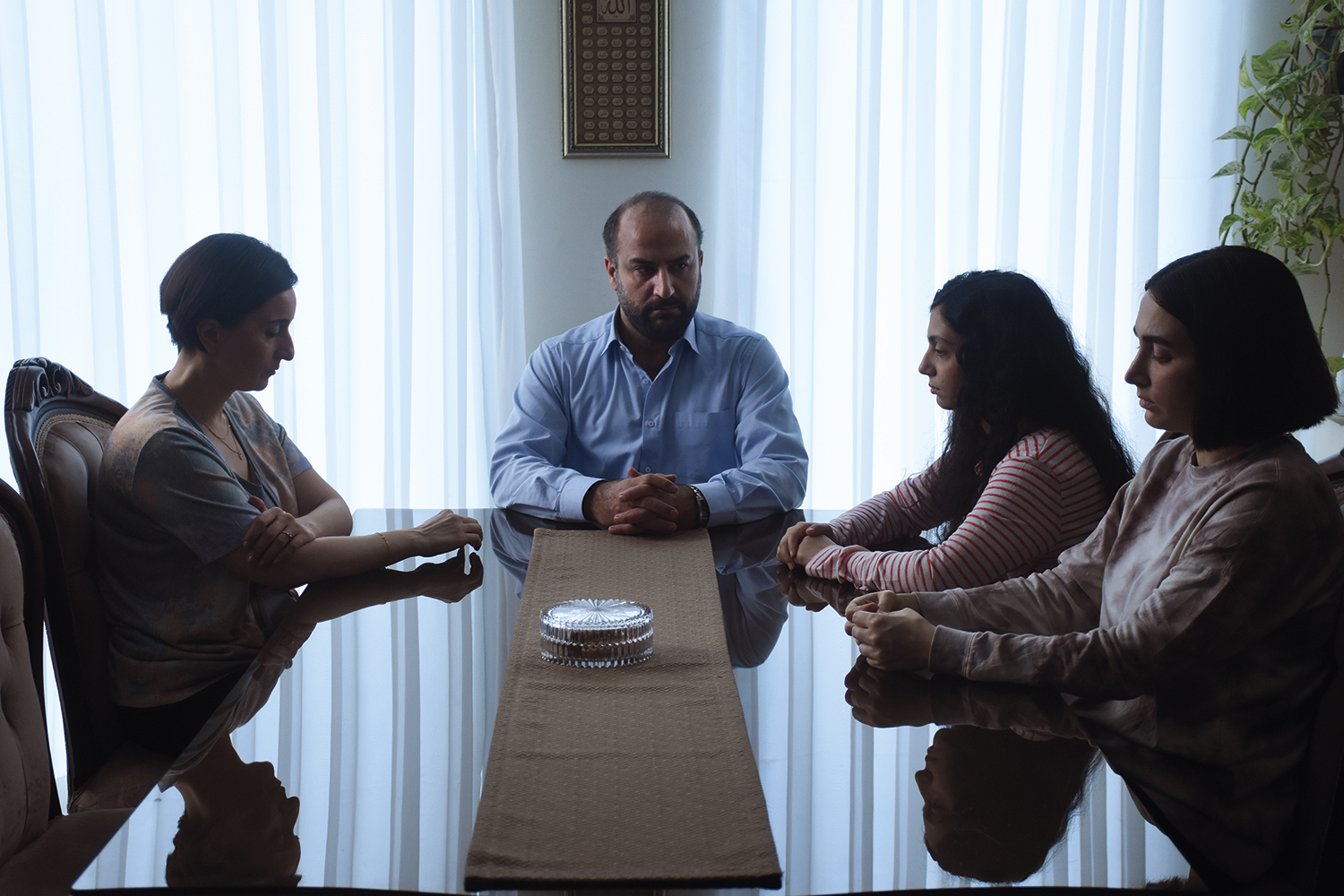
The Seed of the Sacred Fig is by the Iranian filmmaker Mohammad Rasoulof and all you need to know is that it is extraordinary. What you don’t need to know, but may like to know, is that Rasoulof, who has already been imprisoned multiple times by the authorities, filmed it clandestinely while directing remotely from an undisclosed location and then had to flee Iran on foot. The journey was extremely complicated and dangerous and took 28 days. You could never accuse Rasoulof of taking filmmaking lightly. But that’s not the bottom line. The bottom line is: it’s enthralling cinema.
The film follows a family in Tehran. Iman (Misagh Zare) is the patriarch who has just been appointed an investigating judge in Iran’s revolutionary court. The courthouse has corridors strewn with life-size cutouts of generals and military figures (every frame in this film is fascinating – look out for the mountains the motorways cut through). However, he soon learns his real assignment is to sign off on death sentences without any investigation at all. It plays on his conscience at first but, as he is so concerned about keeping his job and status, he quickly puts all that aside, does what is required, stops questioning. It is dangerous work, so he is given a gun for his protection. It is Iman’s gun and also Chekhov’s gun.
Iman is essentially weak but an authoritarian at home, where he expects to be obeyed by his wife and daughters. His wife, Najmeh (Soheila Golestani), is deeply loyal and submits to her husband in everything. She’s probably far brighter than he is, and would run rings round him given the opportunity, but this is what it means to be a married woman in a misogynistic culture, and she accepts it.
They have two daughters. Rezvan (Mahsa Rostami) is 21 and a university student while Sana (Setareh Maleki) is 14. The stability of family life is threatened when both become increasingly aware of the ‘Woman, Life, Freedom’ movement playing out in the streets. They can hear the chants of ‘down with the theocracy!’ from inside their apartment. This movement was, you may recall, ignited by the death of 22-year-old Mahsa Amini who, in 2022, was arrested by the ‘guidance patrol’ for not wearing a hijab properly and died in custody. (A ‘stroke’, said the police.) Rasoulof intercuts the drama with real-life footage of the protests and the police violence. It is harrowing and horrendous but necessary if we are to understand the danger and volatility.
It is brave cinema, and daring cinema, as well as great cinema
The film becomes a political thriller after Iman’s gun – which is also Chekhov’s – goes missing. Who took it from his bedside table? Was it his wife? One of his increasingly defiant daughters? This fuels his paranoia as he begins to doubt them, while they in turn start to doubt him. Seismic shifts ripple through the family in a way that, presumably, mirrors the broader social upheavals taking place. There are even blindfolded interrogations.
It has a running time of approaching three hours, which is bladder-testing but does allow you to embed with the family and witness their everyday life right down to Sana being fitted for a new school uniform. (When foreign films are very foreign, I love that kind of detail.) The tension escalates in the third act, with a car chase and a dash to Iman’s rural childhood home, but the ending feels rushed. On the other hand, is the film suggesting this is how all theocracies must end?
The performances are excellent – there have been repercussions for the cast and crew that you can read about elsewhere. It is brave cinema, and daring cinema, as well as great cinema. Next week, Bridget Jones: Mad About the Boy. It may not have such a back-story.








Comments